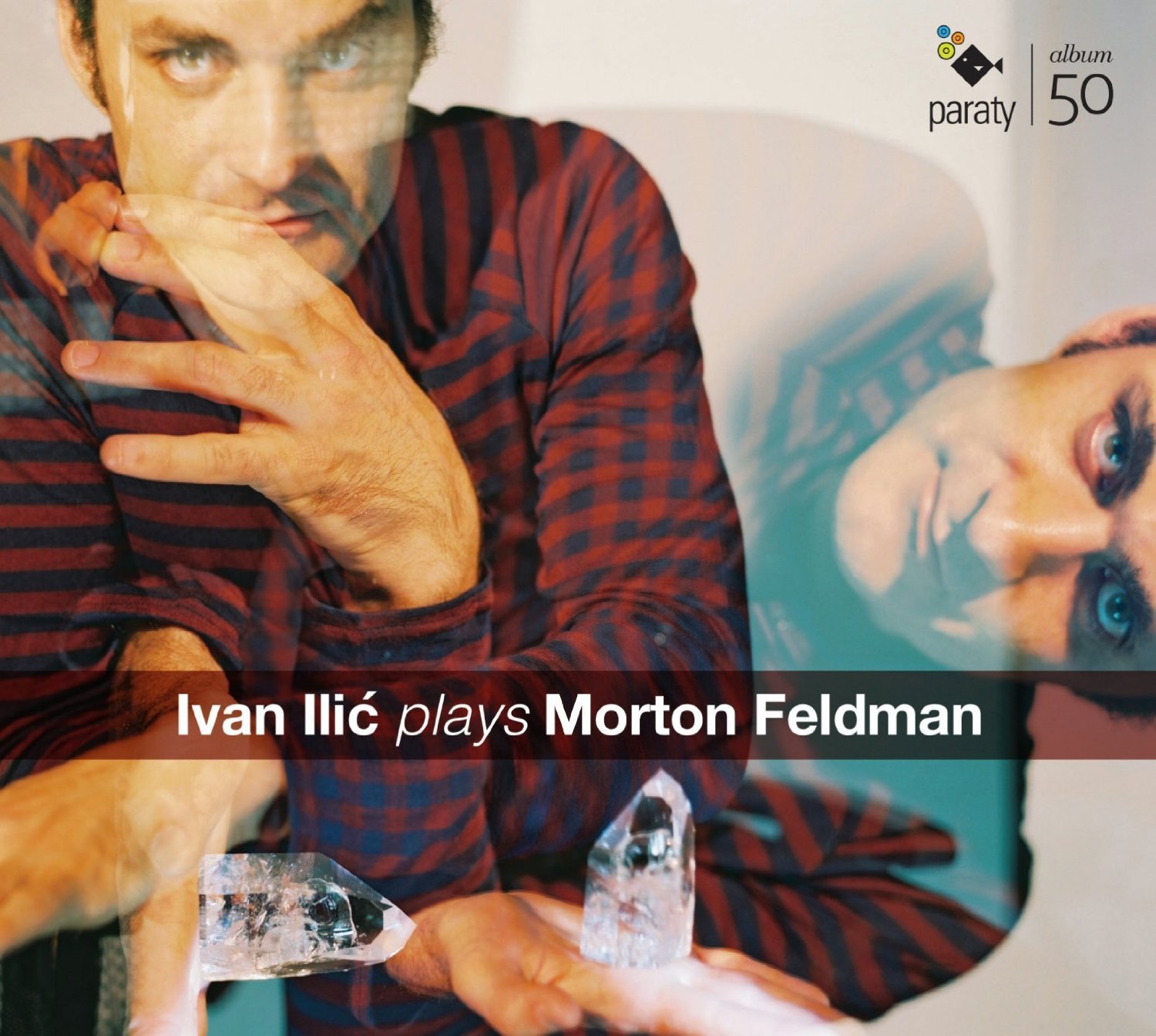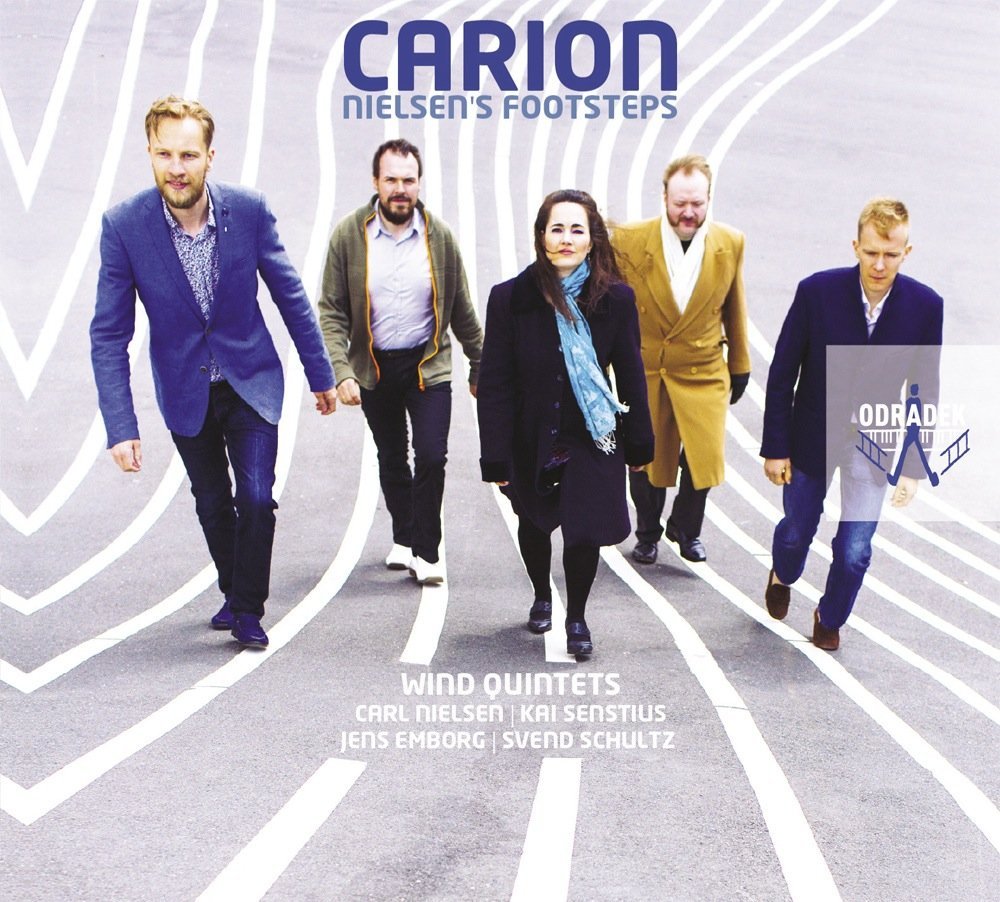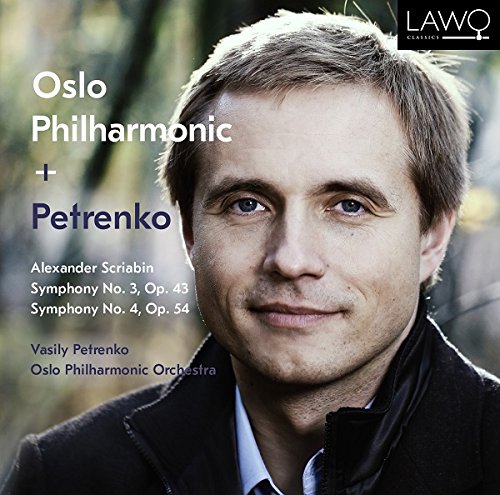Classical CDs Weekly: Feldman, Nielsen, Scriabin | reviews, news & interviews
Classical CDs Weekly: Feldman, Nielsen, Scriabin
Classical CDs Weekly: Feldman, Nielsen, Scriabin
Spare pianism, ripe Russian symphonies and the greatest of all wind quintets

 Feldman: For Bunita Marcus Ivan Ilić (piano) (Paraty)
Feldman: For Bunita Marcus Ivan Ilić (piano) (Paraty)
Exactly why Morton Feldman’s music works is a bit of a mystery; this is a musician who didn’t follow any particular school of composition, telling listeners that “I compose by ear, and there you have it.” There’s a good quote from Cornelius Cardew in pianist Ivan Ilić’s sleeve note that gets closer still to unpicking Feldman: “… almost all his music is slow and soft… only when one has become accustomed to the dimness of light can one begin to perceive the richness and variety of colour.” For Bunita Marcus is a late work, completed in 1985 and dedicated to one of Feldman’s favourite composition students. Some Feldman pieces take on Wagnerian dimensions, but this one is a relatively concise 70 or so minutes. Ivan Ilić’s disc cannily breaks it down into 22 linked sections. His booklet essay provides a lucid guide to the work, but the best advice would be to clear an hour or so, dim the lights, open a bottle of wine and listen.
This is such strange, hypnotic music, and quite unlike anything else. For long stretches nothing seems to happen at all, but you can’t tear yourself away, making the moments of change incredibly powerful: passages where the bare harmonies suddenly swell, or we get something approaching two-part writing. Enjoy it as a succession of beautiful sounds – bell-like chords, deep, resonant bass notes and pregnant pauses. Ilić’s sensitivity is just what this music needs. Undeniably odd, but magnificent all the same, and an ideal introduction to Feldman’s sound world.
 Nielsen's Footsteps - Wind Quintets by Nielsen, Senstius, Emborg and Schultz Carion Ensemble (Odradek)
Nielsen's Footsteps - Wind Quintets by Nielsen, Senstius, Emborg and Schultz Carion Ensemble (Odradek)
Carl Nielsen's Wind Quintet is a humane, witty masterpiece, all the more remarkable coming from a musician whose first instrument was the violin. Nielsen's symphonies are full of striking woodwind writing – the Fifth's squealing clarinet solos are like nothing else in the repertoire, and No 6 closes with the sound of farting bassoons. The Quintet was written as a piece of compositional light relief after the seismic Fifth Symphony, Nielsen having overheard a group of wind players from the Royal Danish Orchestra practising in the house of a pianist acquaintance. It succeeds as a beautifully idiomatic piece of wind writing and as a set of character portraits illustrating the five musicians who gave the first performance in 1922 – Nielsen planned to write a concerto for each one, but only finished those for clarinet and flute. There's a bucolic opening movement, followed by a charming minuet. The finale's dark opening is a surprise, followed by an entrancing sequence of variations on a Danish hymn tune. The work receives a definitive performance on this disc, from the Danish-Latvian group Carion. There's a warmth and ease to their playing; it’s as if you're eavesdropping on private conversations in the quieter moments. Nielsen's spiky clarinet writing is brilliantly served by Egīls Šēfers, and Niels Anders Vedsten Larsen's bassoon playing is impeccable.
Smart folk would pay full price for this 25-minute work alone, especially in a performance as good as this. It comes with a smartly choreographed bonus DVD filmed in what looks like a posh art gallery, the players mingling, advancing and retreating and pairing off as the music requires. We get superb couplings in the form of three previously unpublished quintets found in the Danish Royal Library, each one owing much to Nielsen's example. The opening of Kai Helmer Senstius's Quintet consciously echoes Nielsen's. Jens Laursøn Emborg's is a suite of sharply drawn character pieces, and Svend Simon Schultz's bubbles with dry humour. All marvellous – the best wind quintet disc in years.
 Scriabin: Symphonies 3 & 4 Oslo Philharmonic Orchestra/Vasily Petrenko (Lawo Classics)
Scriabin: Symphonies 3 & 4 Oslo Philharmonic Orchestra/Vasily Petrenko (Lawo Classics)
One of Scriabin's early biographers wrote of him that “no one was more famous during their lifetime, and few were more quickly ignored after death.” This astute comment is easier to understand after a few hours spent in the company of this disc. While you're listening, it's terrific, possibly the loudest, most extravagantly orchestrated, most alluring music imaginable. And strangely unmemorable once it's all over. Symphony No 3's clunky motto theme is an earworm, and that's about it. But play this performance at full volume through a decent pair of speakers and you'll be dazzled. Vasily Petrenko secures electrifying playing from his Oslo Philharmonic players, particularly an extrovert, swaggering principal trumpet, suitably ear-splitting in the louder climaxes. Never has Scriabin’s music sounded so approachable, or so much fun.
The Poem of Ecstacy (Scriabin's 4th Symphony), barely 20 minutes long, is more interesting still, the bolder, more dissonant harmonies softened by diaphanous scoring and frequent changes of direction. Head-scratchingly strange, but utterly compelling. The resplendent final chord is something to be savoured, repeatedly. This is a phenomenal disc, smartly conducted and brilliantly recorded. It comes with a superb booklet, which describe Scriabin's understandable slump in reputation during the Soviet era – it's incredible, then, to discover that The Poem of Ecstacy was broadcast on national radio to celebrate Yuri Gagarin's space flight in 1961. Let's hope that Petrenko programmes both pieces in Liverpool soon.
Explore topics
Share this article
The future of Arts Journalism
You can stop theartsdesk.com closing!
We urgently need financing to survive. Our fundraising drive has thus far raised £49,000 but we need to reach £100,000 or we will be forced to close. Please contribute here: https://gofund.me/c3f6033d
And if you can forward this information to anyone who might assist, we’d be grateful.

Subscribe to theartsdesk.com
Thank you for continuing to read our work on theartsdesk.com. For unlimited access to every article in its entirety, including our archive of more than 15,000 pieces, we're asking for £5 per month or £40 per year. We feel it's a very good deal, and hope you do too.
To take a subscription now simply click here.
And if you're looking for that extra gift for a friend or family member, why not treat them to a theartsdesk.com gift subscription?
more Classical music
 Echo Vocal Ensemble, Latto, Union Chapel review - eclectic choral programme garlanded with dance
Beautiful singing at the heart of an imaginative and stylistically varied concert
Echo Vocal Ensemble, Latto, Union Chapel review - eclectic choral programme garlanded with dance
Beautiful singing at the heart of an imaginative and stylistically varied concert
 Scott, Irish Baroque Orchestra, Whelan, RIAM, Dublin review - towards a Mozart masterpiece
Characteristic joy and enlightenment from this team, but a valveless horn brings problems
Scott, Irish Baroque Orchestra, Whelan, RIAM, Dublin review - towards a Mozart masterpiece
Characteristic joy and enlightenment from this team, but a valveless horn brings problems
 Classical CDs: Voice flutes, flugelhorns and froth
Baroque sonatas, English orchestral music and an emotionally-charged vocal recital
Classical CDs: Voice flutes, flugelhorns and froth
Baroque sonatas, English orchestral music and an emotionally-charged vocal recital
 Kanneh-Mason, Britten Sinfonia, Shave, Milton Court - a grin and a big beaming smile
A pair of striking contemporary pieces alongside two old favourites
Kanneh-Mason, Britten Sinfonia, Shave, Milton Court - a grin and a big beaming smile
A pair of striking contemporary pieces alongside two old favourites
 theartsdesk at the New Ross Piano Festival - Finghin Collins’ musical rainbow
From revelatory Bach played with astounding maturity by a 22 year old to four-hand jazz
theartsdesk at the New Ross Piano Festival - Finghin Collins’ musical rainbow
From revelatory Bach played with astounding maturity by a 22 year old to four-hand jazz
 First Person: Manchester Camerata's Head of Artistic Planning Clara Marshall Cawley on questioning the status quo
Five days of free events with all sorts of audiences around Manchester starts tomorrow
First Person: Manchester Camerata's Head of Artistic Planning Clara Marshall Cawley on questioning the status quo
Five days of free events with all sorts of audiences around Manchester starts tomorrow
 Goldscheider, Brother Tree Sound, Kings Place review - music of hope from a young composer
Unusual combination of horn, strings and electronics makes for some intriguing listening
Goldscheider, Brother Tree Sound, Kings Place review - music of hope from a young composer
Unusual combination of horn, strings and electronics makes for some intriguing listening
 theartsdesk Q&A: composer Donghoon Shin on his new concerto for pianist Seong-Jin Cho
Classical music makes its debut at London's K-Music Festival
theartsdesk Q&A: composer Donghoon Shin on his new concerto for pianist Seong-Jin Cho
Classical music makes its debut at London's K-Music Festival
 Helleur-Simcock, Hallé, Wong, Bridgewater Hall, Manchester review - moving lyricism in Elgar’s concerto
Season opener brings lyrical beauty, crisp confidence and a proper Romantic wallow
Helleur-Simcock, Hallé, Wong, Bridgewater Hall, Manchester review - moving lyricism in Elgar’s concerto
Season opener brings lyrical beauty, crisp confidence and a proper Romantic wallow
 Kohout, Spence, Braun, Manchester Camerata, Huth, RNCM, Manchester review - joy, insight, imagination and unanimity
Celebration of the past with stars of the future at the Royal Northern College
Kohout, Spence, Braun, Manchester Camerata, Huth, RNCM, Manchester review - joy, insight, imagination and unanimity
Celebration of the past with stars of the future at the Royal Northern College

Add comment